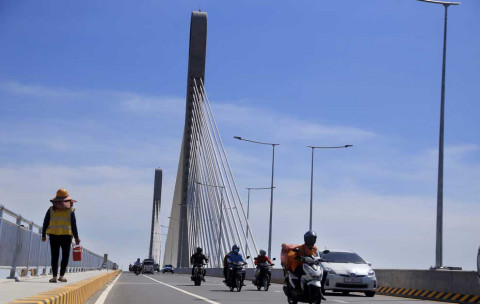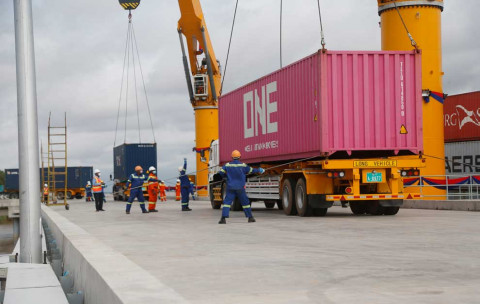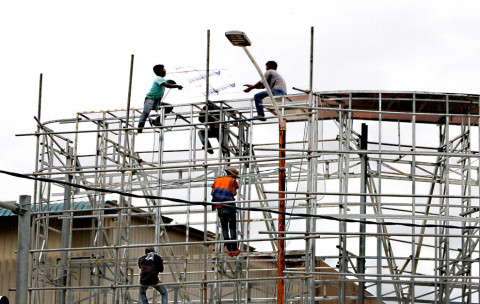
Garment workers assemble bags at a factory in Kampong Speu province in November. Vei Samnang via FB
Approximately one million workers in the apparel sector across four countries – Cambodia, Vietnam, Indonesia and India – have benefited from Sustainable Trade Initiative’s (IDH) Life and Building Safety (LABS) worker protection programme.
The campaign has been active in India and Vietnam since 2019, positively impacting over 572,000 workers. Its expansion into Cambodia in May 2022 reflects the programme’s aim to address preventable fire, electrical and structural building safety risks in key production countries in the sector.
The initiative involves assessing factories and establishing a framework for monitoring, mitigating and remedying risks.
“The LABS Initiative is a collaborative, industry-driven programme that strives to improve life and building safety standards in the apparel, footwear and accessories industries. It concentrates on fostering safer working conditions for factory workers, while also addressing preventable safety hazards like fires, electrical issues and structural defects,” a December 8 IDH press release stated.
Pramit Chanda, global director for textiles and manufacturing at IDH, stressed the organisation’s dedication to having a lasting, positive effect on workers’ lives and promoting a culture of safety across industries.
“While celebrating this milestone, IDH anticipates further extending the LABS initiative’s reach to create a more significant impact in the future,” he stated.
Emerald Am, country manager for LABS, noted in a recent workshop that safety has improved, with over 100 factories completing the programme.
“We have integrated nearly 500 factories in four countries. For brands and retailers, it’s crucial to ensure safety in their supply chains where LABS is operational … mitigating [various] safety risks,” he said.
Kong Sang, president of the Textile, Apparel, Footwear and Travel Goods Association in Cambodia (TAFTAC), noted at an event in August that the country has 1,077 factories, including 802 garment, 140 footwear and 134 travel goods manufacturers, collectively employing 764,358 workers.
The sector remains crucial to the Cambodian economy, he added, citing a report from the General Department of Customs and Excise (GDCE) which indicated that the industry’s export value reached $12.5 billion in 2022, nearly 60% of the country’s total exports, and contributed 10% to the domestic economy.
To maintain recovery and competitiveness, particularly with Vietnam, Indonesia, Myanmar and Bangladesh, Sang stressed the importance of addressing seven key challenges: labour and logistics costs, productivity, trade facilitation, taxes, investment, industry development, and environmental and social sustainability.
IDH reported that since its 2019 inception, LABS has conducted over 465 factory assessments and achieved a 77% remediation rate. The programme evaluates factories, monitors safety risks and provides strategies for mitigation and correction.

























